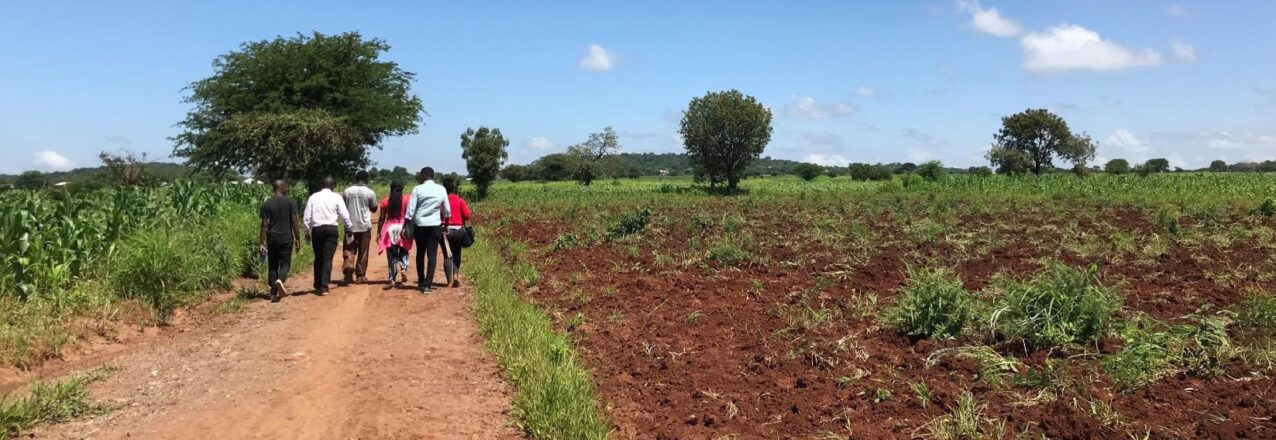Abstract
This impact evaluation examined USAID’s Land Tenure Assistance (LTA) activity, which was implemented in Iringa District, Tanzania from 2015 to 2019. LTA assisted in land use planning and delivering formalized documentation of customary rights to village residents, known as Certificates of Customary Rights of Occupancy (CCROs), through the use of the Mobile Application to Secure Tenure application. The evaluation randomized treatment assignment across 60 villages, with half receiving LTA’s activities. The five evaluation questions cover the following household outcomes: documentation and tenure security, land disputes, land use and investment, empowerment, and economic wellbeing.
The evaluation team conducted data collection via a panel survey of 1,361 households over three stages (two baseline phases, an interim midline phase for a subset of households, and an endline phase). The evaluation found that within three years of CCRO receipt, LTA had a large and significant positive impact on household tenure security and documentation of land rights, reduced the likelihood of current and future land disputes, and had a smaller positive impact on use of communal land. LTA did not appear to impact the likelihood of fallowing, crop diversification, household land investments, access to credit, or other indicators of household economic wellbeing during that timeframe. Qualitatively, results suggested tangible and important improvements to women’s empowerment, including women’s increased access to land resources and tenure security. The evaluation results help confirm aspects of LTA’s theory of change and align with literature on the impacts of customary land rights formalization on tenure security and other shorter-term outcomes along the envisioned causal pathways. However, the results also highlight a need to revisit expectations for the time required to achieve downstream impacts in rural smallholder settings as a result of customary land formalization on its own. The lack of downstream impacts related to land investments, agricultural productivity, diversification, and broader economic wellbeing highlight the need for USAID to consider coupling or synchronizing future CCRO provisioning programs with agricultural extension and market linkages support to villagers within identified value chains, and financial literacy, financial services, and business development support, once CCROs are obtained.
Executive Summary
This report presents results of an impact evaluation (IE) of the Feed the Future Tanzania Land Tenure Assistance (LTA) activity. The Office of Land and Urban in the United States Agency for International Development’s Bureau for Economic Growth, Education, and Environment (USAID/E3) commissioned the evaluation. The evaluation used a two-phase randomized controlled trial design to rigorously test how mobile mapping and facilitation of formalized customary land tenure certification affect household tenure security, land disputes, investment, women’s empowerment, longer-term economic wellbeing, and related land use and management issues in Iringa District, Tanzania. This report provides impact estimates at endline on key indicators and descriptive qualitative findings related to five evaluation questions, two to two-and-a-half years after household land mapping and receipt of formalized customary land documentation via Certificates of Customary Right of Occupancy (CCROs).
LTA Activity Description
In recent decades, Tanzania and many other countries across sub-Saharan Africa have undertaken substantial land reforms to formalize customary land rights for village residents, aiming to improve tenure security and unlock economic opportunities for the rural poor. The Tanzanian land rights system is based on public ownership of land, wherein all land is owned by the state and held in trust by the president. Individuals who use or occupy village land have the right to obtain formal documentation of their customary land use rights via a legally valid and transferrable CCRO, which is issued by the local government. However, factors such as insufficient capacity of district land offices (DLOs) to assist villages with land use planning or issue CCROs, villagers’ unfamiliarity with formal land laws, and lack of funds to pay CCRO fees have resulted in few villagers obtaining formal documentation of their land rights and CCROs for their plots. Increasingly, the Government of Tanzania and the donor community recognize that improving the security of land rights is essential to protecting the rights of smallholders, reducing land disputes, and maximizing the region’s economic potential.
USAID/Tanzania awarded the four-year, $6 million LTA activity to DAI in December 2015. The activity sought to clarify and document land ownership, support local land use planning efforts, and increase local understanding of land use and land rights in Tanzania. LTA assisted villages and the DLOs in Iringa and Mbeya districts in completing the land use planning process and delivering CCROs in select villages. It also provided education on land laws, CCROs, and land management. LTA used the Mobile Application to Secure Tenure (MAST), a USAID-developed app and approach that facilitates the land mapping and customary land formalization process. The 2015-2019 phase of LTA in Iringa District was implemented in 36 villages, 6 of which were chosen for initial implementation and an additional 30 were part of this evaluation. According to LTA implementation tracking data, the activity registered 59,354 CCROs in Iringa District villages during that time, of which 51,222 CCROs were collected by 26,436 individual claimants.


